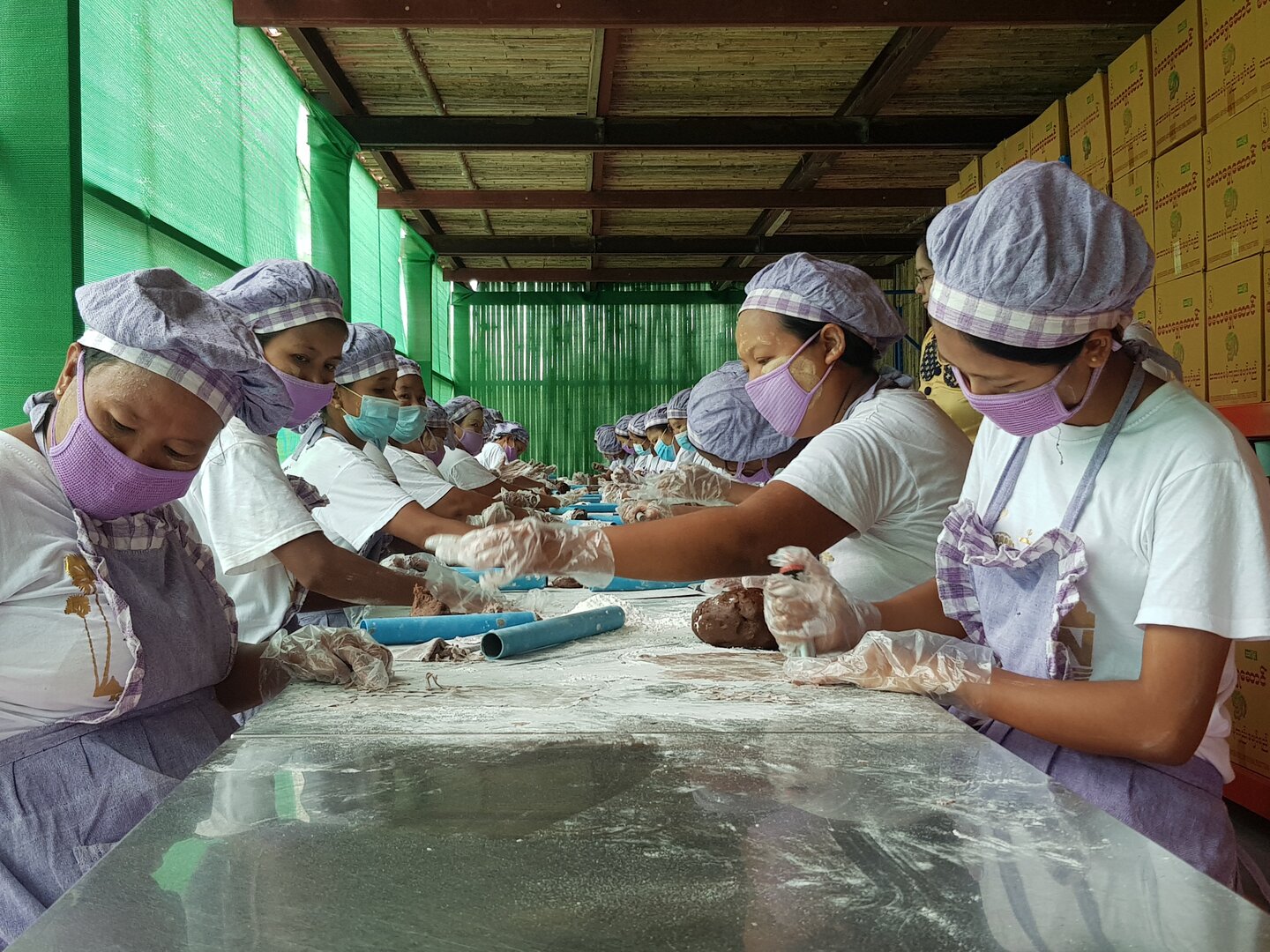Reports of escalating violence amidst political upheaval in Myanmar give much cause for concern. International trade and engagement in the country’s development are suddenly uncertain - with wide-ranging implications. Here we describe just one activity that could be affected: support for women involved in the collection and processing jujube fruit and its products – which also contributes to conserving biodiversity.
Two types of jujube in Myanmar
Anyone fortunate enough to have visited the UNESCO world heritage site of Bagan in Myanmar may recall appreciating the shade of the somewhat thorny, scrubby trees scattered amongst the temples. Forming part of the heritage landscape, many of these trees are jujube, Ziziphus mauritania. Throughout the central dry zone of Myanmar, in the Mandalay, Sagaing and Magwe regions, the tree – which produces fruits known as sour jujube – grows abundantly. Since it regenerates naturally, it is rarely planted; rather, it is left to grow in fields and protected if necessary, although its sharp thorns are usually adequate protection in themselves. Natural regeneration is in fact preferable to planting as it favors strong root development. A related tree, Ziziphus jujuba, is sometimes planted for its sweet fruits, but it is the sour jujube that is generally more prized.
Promoting commercial uses of sour jujube
As part of the technical assistance provided to the Regional Bio-Trade project of SECO, the Swiss State Secretariat for Economic Cooperation, Helvetas has been working to increase the commercial potential of jujube. The aim of the project is to promote sustainable trade of natural products in a manner that increases income for rural women and men whose livelihoods depend on biodiversity. Giving economic value to products such as jujube is expected to result in conservation of local ecosystems and the biodiversity within them.
Sour jujube fruits are usually collected by allowing the fruit to fall naturally, or by shaking the tree slightly; sometimes a bamboo pole may be used to reach high fruit, but trees are rarely damaged. The fruits are then dried in the sun – a task supervised by women – and sold to collectors or processors. The dried fruits have multiple uses. They are used as a flavoring in many dishes as well as for making a locally well-known syrup, whilst the inner part of the seed (the endosperm) is used in traditional Chinese medicine. Powder from the dried pulp is also used to make jaggery (unrefined sugar), and the lowest quality pulp goes to livestock for fodder. Broken parts of the seed shell are used for fuel. Jujube syrup is produced by several processing companies, amongst them the Salay Shae Saung Company Ltd, which mainly employs women in the manufacturing process.
What the project has done so far
The project first engaged with the company in 2017, helping them to plan how to grow their business while making it fairer and more sustainable. In subsequent years, the company was supported to realize this plan through technical and investment support for improved management practices, food safety, deeper links with jujube producers and opportunities to meet international clients. With the arrival of COVID-19 in Myanmar in 2020, the project also helped the company adjust its already improved health and safety system to allow continued operations, maintaining employment and ensuring markets for jujube collectors.

Does trade encourage biodiversity conservation?
A study organized by the project into whether jujube cultivation contributes to biodiversity conservation reached very positive findings. Not only is the tree recognized by local people as part of the cultural landscape; it is also home to a wide variety of insects including wild bees and other pollinators, spiders, and lizards such as the Indo-Chinese forest lizard (Calotes mystaceus). One bird especially associated with the tree is the endemic White-throated Babbler (Turdoides gularis), and many small mammals including squirrels, rabbits and deer feed on the fruits and shelter in the tree’s shade. Overall, the increased cultivation of jujube that is being stimulated by its commercial value is a good example of the triple bottom line of social, economic, and environmental sustainability.






